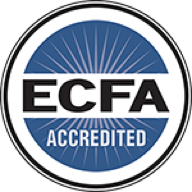Following a review of the comparative costs, revenues, and charges for FCMM’s managed funds and mutual funds, the Retirement Plan will revise fee schedules for funds starting January 1, 2019. The changes are designed to spread the costs of administering the Plan more evenly among the various funds.
Fees Changing
While the fees, both direct and indirect, for FCMM Plan administration have been fully disclosed over the years (See Form 41 Fees), some of the costs are recouped through “revenue-sharing” – a method by which a mutual fund forwards a fractional amount to the retirement account provider. Known by various names as 12b-1, subTA, or SSA fees, this revenue-sharing has typically been used for marketing, operating, or advising costs of the account provider.
Recent years have seen movement towards simplicity and greater transparency in investment funds for retirement accounts, resulting in more funds that provide little or no revenue-sharing, and thus less cost for the fund. Without such embedded cost, earnings are correspondingly higher and direct fees for providing the retirement account are straightforward.
On January 1, FCMM will replace most current revenue-sharing funds with institutional classes of funds that are free of revenue sharing. And FCMM will adjust the fees directly charged to participants’ mutual funds for FCMM operations.
For example, the American Funds, Option F, currently embed revenue-sharing 12b-1 fees of 25 bps (Basis Points, or hundredths of a percent, equaling 0.25%) and subTA fees of 10 bps, which are deducted before participant earnings. These fees will be discontinued and FCMM’s after-earnings management fee will be revised to 74 bps – an overall reduction from 83 bps from the current combined 35 bps embedded revenue sharing plus 48 bps for the FCMM direct fee.
Similarly, Option J funds will be charged 74 bps. Option G funds, which are offered as “do it yourself” funds with no investment counsel available from FCMM, will be charged 54 bps. FCMM Managed Funds (Options C, D, E) pay similar Plan costs before earnings are calculated, and thus have no after-earnings fees subtracted.
The current $18 annual fee ($4.50 per quarter) for mutual fund account maintenance – applied to Options F, G, and J – will no longer be charged.
For a complete description of the new fees schedule, see Form 41B “Fees Effective January 1, 2019”.
Change to Institutional Class
The mutual funds offered in Options F, G, and J will be moved from the current “Investor” class to the respective “Institutional” class of funds, with a few exceptions for Vanguard funds where institutional ("Admiral") funds are not available. After January 1, participants will notice the change of fund “ticker” symbols, reflecting the lower-cost identical institutional funds.
Two current Timothy Plan allocation funds, Conservative Growth TCGAX and Strategic Growth TSGAX, have no corresponding funds of the Institutional class. However, FCMM will provide two portfolio options that mirror the allocation funds, so there will effectively be no change.
Fees Applied Quarterly
The fees for FCMM Plan administration are deducted quarterly from mutual fund Options (F,G,J), applied to the end-of-quarter balances.
Fees deducted in January 2019 will be the final application of fees prior to the new rates, applied to asset balances as of 12/31/2018. Fees for the first quarter of 2019 will be applied at the new rates in April.
FCMM Retirement Plan Value
The review of FCMM funds also looked at the costs and fees of comparable church retirement plans and found FCMM’s Plan to be both reasonable and competitive.
The changes announced for January 1, 2019, are designed to best serve FCMM participants with a valuable, IRS-compliant, tax-advantaged plan to prepare for post-employment years of serving Christ.

